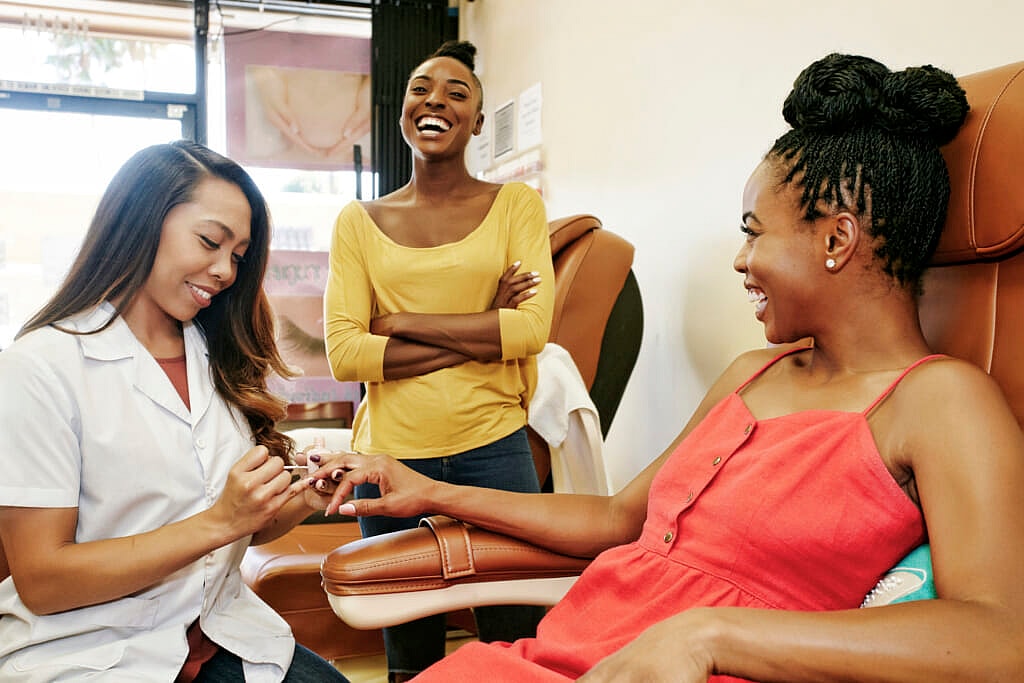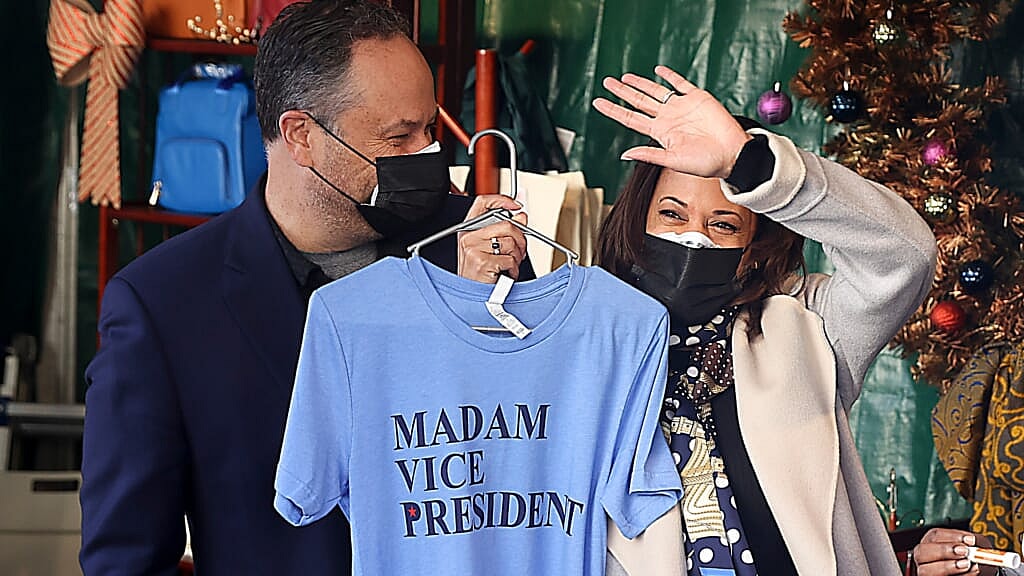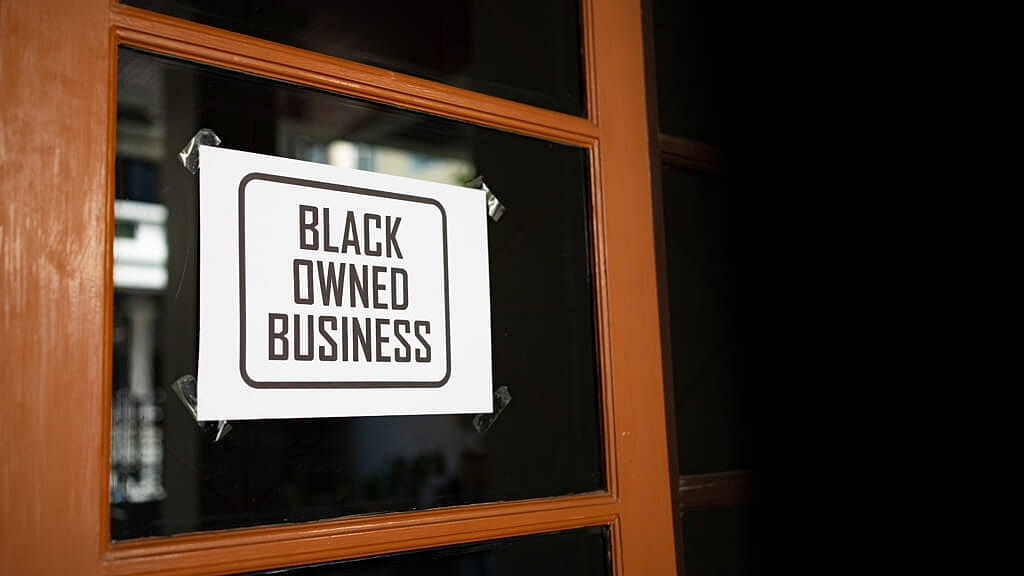In the United States, Black-owned businesses are a vital part of the economy. They generate billions of dollars in revenue and create jobs for thousands of people.
However, Black-owned businesses have always been underrepresented in the business world. This is due to a variety of factors, including discrimination and lack of access to capital.
Despite these challenges, there are many successful Black-owned businesses out there.
Let’s dive more into Black-owned businesses.
Why are Black-owned businesses important?
There are several reasons why Black-owned businesses are important:
They provide jobs and economic opportunities for the Black community.
Black-owned businesses employ about 1.3 million people and generate a combined $133.7 billion in revenue. The number of Black-owned businesses has grown significantly over the past few decades, providing numerous job opportunities for Black people.
They help to close the racial wealth gap.
The median net worth of white households is about 10 times that of Black households. Black-owned businesses can help to close this gap by generating income and wealth for Black families. Black business owners also tend to be wealthier than Black workers with similar education levels.
They promote entrepreneurship and business ownership.
Black-owned businesses help to create positive role models for Black youth. Black business owners can serve as role models for other aspiring entrepreneurs, helping to promote business ownership within the Black community.

They help to revitalize Black neighborhoods
Black-owned businesses can help to empower the Black community by giving Black people a greater sense of control over their economic lives. These businesses can help change the community by providing goods and services, generating employment opportunities, and paying taxes.
How to find Black-owned businesses to support
If you would like to support Black-owned businesses, there are a few ways to find them.
Directories
The best way to find Black-owned businesses is by using online directories. Some of the directories and websites that are constantly updated include:
- Black Nation
- Support Black Owned
- WeBuyBlack
- Official Black Wall Street
- EatOkra
- Post 21
- Chez Nous Guide
- Where U Came From
- Black-Owned Brooklyn
- I Am Black Business
Social media
Another great way to find Black-owned businesses is by using social media. Hashtags such as #Blackbusiness, #Blackowned, and #supportBlackbusiness can be used to find businesses on platforms like Twitter, Instagram, and Facebook.
Word of mouth
A final way to find Black-owned businesses is by word of mouth. Asking friends, family, and colleagues for recommendations is a great way to discover new businesses.

States with major Black-owned businesses
As per a study done by Merchant Maverick, these states “provide the best environments for Black businesses to thrive” as of 2022:
- Virginia: There are 755 Black-owned firms for every million inhabitants in the Old Dominion, making up 2.18% of Virginia’s workforce.
- Maryland: Maryland has the fourth-largest percentage of Black citizens in the country and the highest proportion of Black residents of any state on the East Coast, with 31% of its population being Black. Therefore, it shouldn’t be a huge shock that it ranks highest in the United States for the number of Black-owned businesses per million people, at 1,213.
- Texas: Starting a business in Texas could be advantageous for Black entrepreneurs, with Merchant Maverick noting Texas’ “consistency” and lack of income tax as possible motivators for entrepreneurs. Black-run enterprises in the state have an average annual payroll of $337K and earn Black business owners an average yearly income of $64,240.
- Nevada: Nevada is a relatively business-friendly jurisdiction, and this holds true for both huge enterprises and small, minority-owned companies. Nevada also has the largest yearly Black-owned business payroll in the United States, at $586,000.
- Delaware: With almost 25% of the population being Black in Delaware, this state has the 7th-highest percentage of Black people nationwide. Delaware is ranked fourth in terms of the percentage of the workforce that is employed by Black-owned businesses and sixth when it comes to the number of Black-owned enterprises per million residents.
- North Carolina: When it comes to the percentage of its workforce employed by Black-owned businesses, North Carolina is ranked third in the country and eighth when it comes to the proportion of Black-owned enterprises per million inhabitants. It’s also able to attract workers and business owners alike with a relatively low cost of living.
- Ohio: Ohio performs notably well when it comes to the percentage of its workforce that works for Black-owned companies (in 8th place nationally) and the average yearly payroll of those companies (in 13th). The state government of Ohio has put aside money in the recent past to help women- and minority-owned companies flourish there.
- New Mexico: New Mexico is tremendously profitable for Black business owners despite having a lower-than-average Black population. With $560,000 annually, this state has the second-best average payroll for Black-owned enterprises.
- Georgia: Georgia has the second-most Black-owned businesses per capita in the nation, with 928 Black-owned employer enterprises for every million residents. 1.68% of the workforce, which ranks 5th nationwide, is employed by Black-owned enterprises. And one-third of its population is Black, so there is plenty of room for community growth.
- Alabama: With Black inhabitants making up 25.7% of the population, Alabama possesses one of the greatest Black populations in the country. At 436 per million people, Alabama has a substantially greater proportion of Black-owned businesses than the national average. The Alabama Black Chamber of Commerce also helps with funding and events.

Black Entrepreneurship
The number of Black-owned businesses has grown significantly over the past few decades for a number of reasons.
One is the increasing number of African-Americans with college degrees. Another factor is the growing number of Black women entering the workforce, which has helped to fuel the growth of Black-owned businesses. Non-profits such as North Carolina’s ResilNC can also help spur on entrepreneurship.
The number of Black-owned businesses is expected to continue to grow in the coming years.
What challenges do Black entrepreneurs face?
Despite the important role that Black-owned businesses play in the economy, they face a number of challenges.
One of the biggest challenges that Black-owned businesses face is a lack of access to capital. According to a report from the Federal Reserve Bank of Atlanta, Black-owned businesses are less likely than white-owned businesses to have access to traditional sources of capital, such as bank loans. This can make it difficult for Black-owned businesses to get started and grow.
Another challenge is the “entrepreneurial gap.” This is the difference between the number of Black entrepreneurs who start a business and succeed compared to their white counterparts. Findings suggest that racial discrimination, which has its roots in the history of African-Americans’ economic suffrage, is mainly responsible for the performance gap between Black-owned and white-owned businesses. This underperformance in Black entrepreneurship is also strongly influenced by the ongoing social, economic, and political authority of White supremacy.
Despite the challenges, Black-owned businesses are a vital part of the U.S. economy. They provide jobs and contribute to the growth of community wealth. And as the number of Black-owned businesses continues to grow, so too will their impact.

Promoting Black Entrepreneurship
In order to promote Black entrepreneurship, a number of organizations have been created. These organizations provide resources and support for Black-owned businesses.
Some of the most popular organizations include:
- The National Black Chamber of Commerce
- National Minority Supplier Development Council
- U.S. Black Chambers, Inc.
- Black Enterprise
- National Association of African American-Owned Media
- NAACP
If you are interested in starting a Black-owned business, these organizations can provide you with the resources and support you need to get started.
Financing Black Businesses
Black entrepreneurs often face the disadvantage of having difficulty accessing financing because of societal expectations, racial bias, and low credit scores.
Compared to their white counterparts, Black-owned businesses are less likely to be approved for loans, and when they are approved, the loans tend to be for smaller amounts of money.
Black-owned banks provide financing to Black entrepreneurs who may not be able to get loans from traditional banks. In addition, Black-owned banks often invest in and partner with Black-owned businesses, which can provide the businesses with valuable resources and networking opportunities.
The National Bankers Association is the largest trade association for minority-owned banks in the United States. It is a nonprofit organization that represents more than 100 Black-owned banks and promotes the growth and development of these institutions.

How can Black entrepreneurs access capital?
There are a number of things that Black entrepreneurs can do to increase their chances of getting financing for their businesses.
- It is important to understand the lending process and what lenders are looking for. This includes having a well-written business plan and a solid understanding of your financial situation.
- Black entrepreneurs should build strong relationships with lenders and investors. This can be done by attending events and networking with people in the financial industry.
- Black entrepreneurs should consider alternative sources of financing, such as crowdfunding or peer-to-peer lending.
- Black entrepreneurs should focus on improving their credit scores, which is one of the most important factors that lenders look at when considering a loan application. There are a few ways to improve your credit score, such as paying your bills on time, maintaining a good credit history, and using a credit monitoring service.
- Black entrepreneurs should try to get involved with programs and initiatives that are designed to help minority-owned businesses. These programs can provide access to financing, mentorship, and other resources.
Black Wall Street
In the early 1900s, a Black-owned business district known as “Black Wall Street” flourished in Tulsa, Oklahoma. The area was home to more than 300 Black-owned businesses, including restaurants, hotels, banks, and stores.
The success of Black Wall Street was a direct result of the entrepreneurial spirit of the Black community. The community worked together to support Black-owned businesses, and the businesses, in turn, reinvested their profits back into the community.
The prosperity of Black Wall Street came to an abrupt end in 1921 when a white mob destroyed the business district, killing as many as 300 people and injuring nearly 1,000. This was a major setback for the Black community, but it did not stop the entrepreneurial spirit of Black entrepreneurs.
Renaissance in various states
In the early 1990s, a number of Black-owned business districts began to emerge in cities across the United States. These “renaissance” districts were created in response to the growing number of Black-owned businesses and the need for these businesses to have their own dedicated space.
Each of these districts has its own unique history and culture. However, they all share a common goal: to provide a space for Black-owned businesses to thrive.
The renaissance of Black-owned business districts was a direct result of the hard work and dedication of Black entrepreneurs.
The progress to today
Despite the challenges, Black-owned businesses are making progress today. Black entrepreneurs have overcome many obstacles to create successful businesses, and their success is an inspiration to other Black entrepreneurs.
This growth is attributable to a number of factors, including the rise of technology, the growing number of Black entrepreneurs, and the increasing number of Black consumers.
As Black-owned businesses continue to grow, they will play an increasingly important role in the economy. Black entrepreneurs are not only creating jobs and wealth for themselves, but they are also helping to build strong Black communities.
While there is still much work to be done, the progress that Black-owned businesses have made is a cause for optimism.
Black celebrities in business
Rihanna
Rihanna keeps herself busy with her multifaceted business empire that consists of lingerie line Savage x Fenty, skincare line Fenty Skin, cosmetics line Fenty Beauty, luxury clothes line FENTY, and her fragrance.

Tracee Ellis Ross
Tracee Ellis Ross, an actress and comedian, revolutionized the hair care industry with her Pattern Beauty line. The “Girlfriends” actress, who worked on the formula herself, offers everything from microfiber towels to hair products.
Beyoncé
Beyoncé has undoubtedly created waves in the athleisure clothing sector with her label, Ivy Park. Her line now has an Adidas logo and regularly sells out in a matter of minutes. Although difficult to find, the practical designs and vibrant colors make excellent statement items.
Dr. Dre
Beats by Dre was established by Dre, as the name of the company suggests. In 2008, the musician introduced his line of audio equipment with the goal of enabling music fans to “hear what the artists hear.”
Serena Williams
When Serena Williams isn’t winning on the tennis court or performing with Beyoncé, she’s working on her own brand for HSN. With fresh styles for tunics, fringe jackets, and other items, her collection includes prices ranging from $30 to $70.
Oprah Winfrey
After hosting talk shows for 25 years, Oprah Winfrey started her own TV network, OWN, in 2011. As per Forbes, her 25.5% ownership in the network is worth over $65 million. In addition, she has a 7% ownership position in Weight Watchers and has her own publication, “O, The Oprah Magazine.”
Jay Z
Jay-Z is among the most successful celebrity entrepreneurs thanks to his varied company portfolio. In 2008, he established the entertainment business Roc Nation. He also owns the streaming service Tidal.
Sean “Diddy” Combs
Sean “Diddy” Combs is the founder and chief executive officer of Combs Enterprises, a holding company for a range of his ventures in the fragrance, entertainment, apparel, and beverage industries.
Revolt Films, Sean John, AQUAhydrate, Combs Wine & Spirits, The Blue Flame Agency, and Revolt Media & TV are some companies that fall under Combs Enterprises. As per Forbes, Ciroc vodka is currently the primary source of his fortune.


